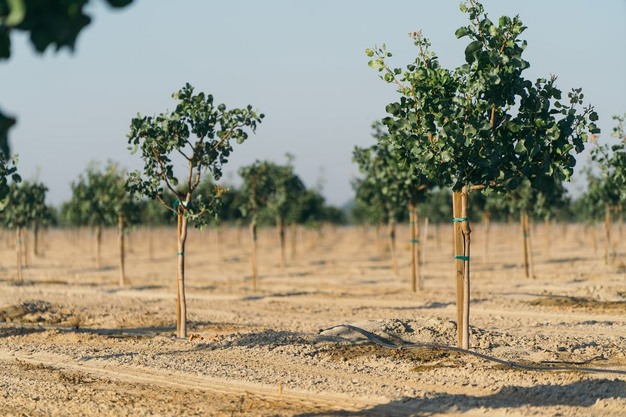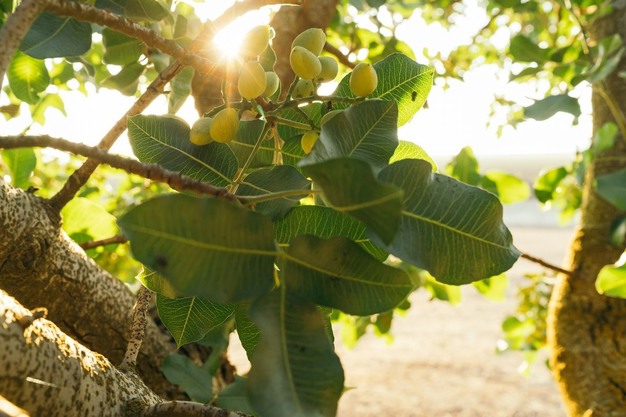Harvest of California pistachios will start next month, and the state is expecting a record-breaking crop. While the forecast varies, a total of 1.5 billion pounds could potentially be harvested. The record number is largely driven by an increase in bearing acreage that grew from 153,000 in 2011 to 488,000 in 2024. In the past seven to ten years, many new orchards were planted due to strong demand and a relatively stable price. Many of these trees have now matured to full production. Also driving volume is the fact that it's an "on" year for pistachios, a crop that's alternate bearing.
 © Nichols FarmsYoung pistachio trees.
© Nichols FarmsYoung pistachio trees.
Impact on pricing
Are there any concerns selling a crop of this magnitude? "We have no concerns," says Joe Wodyka of Nichols Farms. "I am confident California has the ability to find a market for a large crop like this," he added. However, overseas buyers will play a big role in making that happen as domestic demand has been stable in terms of volume. While selling the crop shouldn't be a problem, record-breaking volume is expected to put downward pressure on prices.
California has developed into the world's largest exporter of pistachios with a share of about 70 percent in the global export market. The popularity of California-grown pistachios is largely driven by food safety and consistent quality, which is very much appreciated by Chinese consumers. China is one of the fastest growing consumption markets and has become the largest destination. In addition, India and the E.U. are significant importers of U.S. pistachios.
 © Nichols Farms
© Nichols Farms
Threat of tariff changes
With the industry's dependence on exports, the tariff situation is top of mind. "We haven't been dealing with it much in the past six months as there was little product available to ship," commented Wodyka. As a result, trade has been fairly quiet. However, a surge in demand is foreseen before the end of the calendar year. "The threat of tariff changes is causing tremendous instability in the export market, and we will have to see how things play out," he shared. Turkey and Iran are the largest competitors and although they have a much smaller market share in global trade, they could potentially benefit from retaliatory tariffs imposed on the U.S.
 For more information:
For more information:
Joe Wodyka
Nichols Farms
Tel: (+1) 559-584-6811
[email protected]
www.nicholsfarms.com
